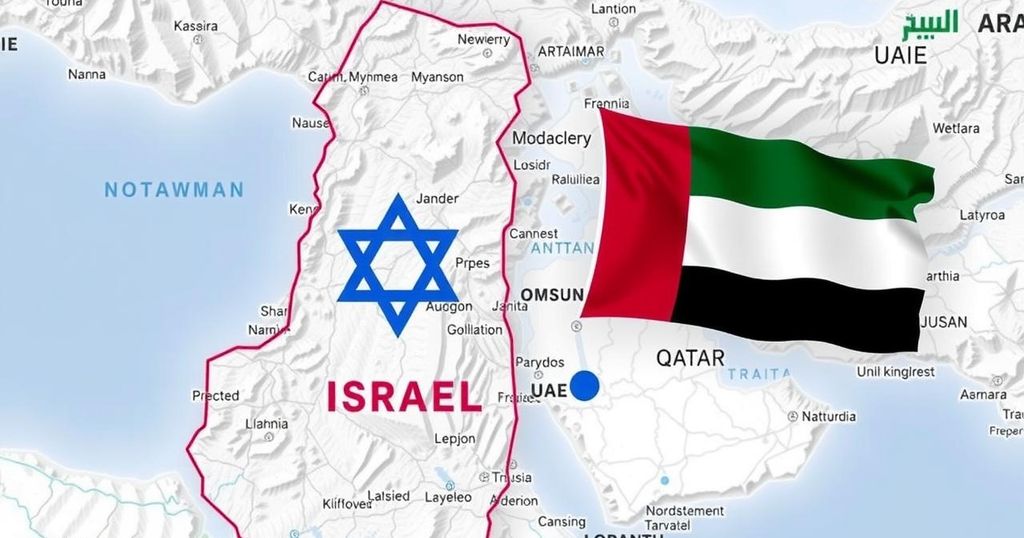Controversy Erupts Over Israel’s New Map Claiming Historical Territories

Israel’s Ministry of Foreign Affairs has provoked international outrage with a newly released map claiming historical claims over Palestine and parts of neighboring Arab countries. Arab nations, including Jordan, Qatar, and the UAE, have condemned the depiction as an affront to sovereignty and a promotion of expansionism, urging for international intervention to prevent further territorial claims.
A significant diplomatic controversy has emerged following the release of a new map by the Israeli Ministry of Foreign Affairs which asserts “historical territorial rights” for Israel, encompassing regions within Palestine and substantial parts of Jordan, Lebanon, and Syria. This map, shared on the ministry’s Arabic-language social media platforms, has incited strong condemnation from various Arab nations who perceive it as a blatant disregard for sovereignty. The map’s portrayal of a Biblical Israel has aggravated tensions, with critics labeling it as an attempt to promote the concept of “Greater Israel.” The ministry’s post claimed that Israel’s historical roots trace back over 3,000 years, referring to key figures such as Kings Saul, David, and Solomon in relation to the Jewish state.
The geography depicted in the Israeli map has been met with vehement backlash from Palestinians and surrounding Arab countries, urging the international community to respond to what they perceive as Israel’s expanding territorial ambitions. Officials from Jordan, the UAE, and Qatar have openly criticized the portrayal as deeply provocative, linking it to Israel’s ongoing expansionism. There are calls for action aimed at curbing these perceived aggressions and protecting the integrity of Palestinian and neighboring Arab territories.
Jordan’s Ministry of Foreign Affairs released a statement declaring that the map reflects “accusations and confusion,” a narrative purportedly pushed by right-wing factions in Israel to hinder the establishment of a Palestinian state. Similarly, Qatar’s Ministry of Foreign Affairs condemned the map as a serious breach of international norms, warning that it could further jeopardize the prospects for peace in the region. The UAE echoed these sentiments, outright rejecting the portrayal of “historical Israel” as a gross violation of international law and expressing profound concern over the impact of such actions on regional stability.
The ongoing debate surrounding Israel’s historical claims ties directly into larger discussions about governance, regional stability, and issues surrounding Palestinian sovereignty. As tensions escalate, it remains crucial for international stakeholders to engage in dialogue and uphold their responsibilities to assist in achieving a just resolution.
The recent release of Israel’s new map has reignited longstanding disputes over territorial claims in the Middle East. This map asserts that Israel rightfully includes parts of Palestine and extends into Jordan, Lebanon, and Syria based on historical narratives. The historical interpretation provided by the Israeli ministry, which claims that these territories constitute a ‘Greater Israel’, has drawn allegations of expansionism and threats to peace and stability from neighboring Arab countries. The controversy emphasizes the sensitive nature of identity, sovereignty, and political rights in the region.
In summary, the release of the new map by the Israeli Ministry of Foreign Affairs has provoked significant backlash from Arab nations and Palestinian leaders. Their concerns center on sovereignty violations and the implications of Israeli territorial claims, which threaten to exacerbate regional tensions. The international community is urged to take collective action to address these challenges and seek to uphold peace and stability in the Middle East.
Original Source: www.india.com








